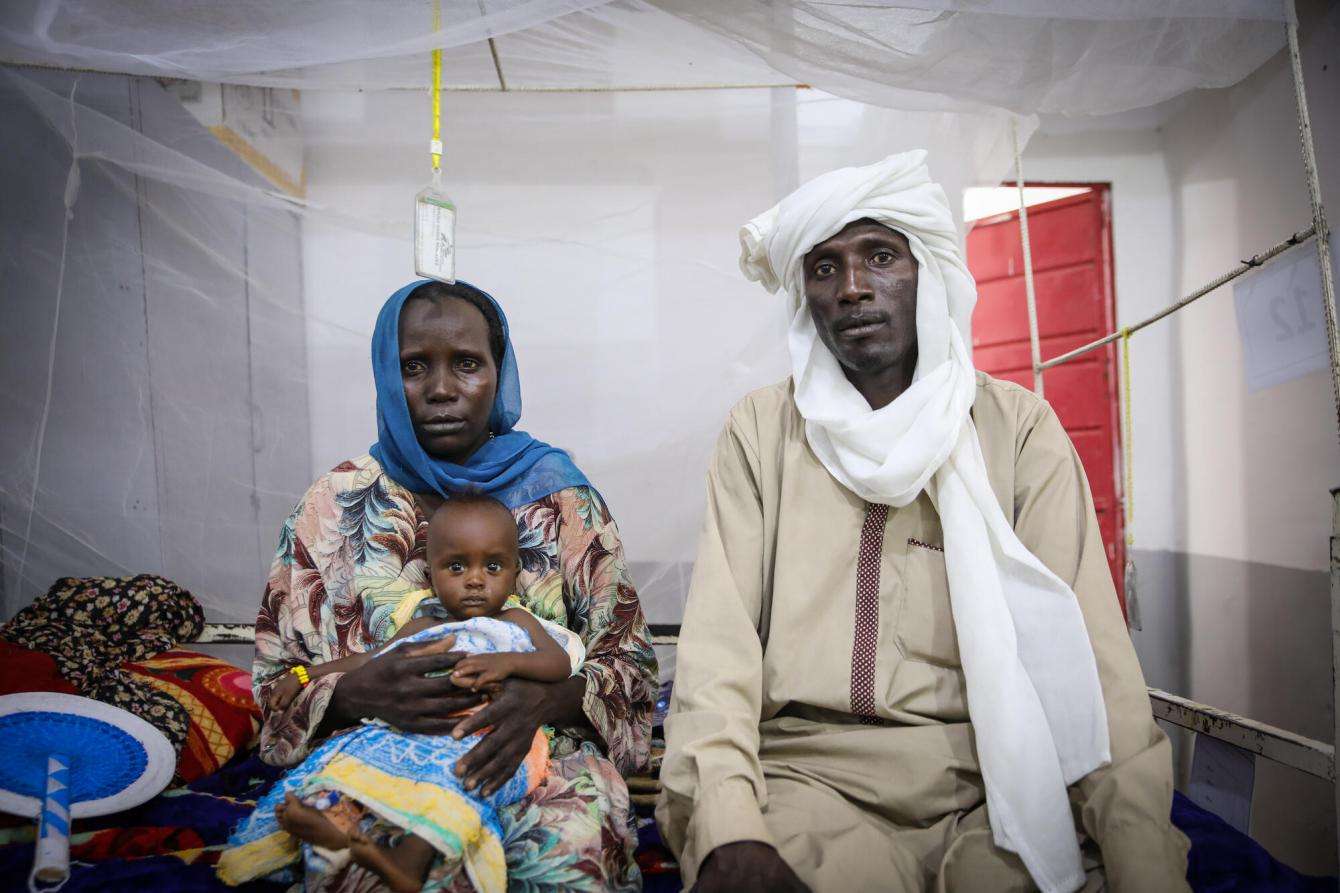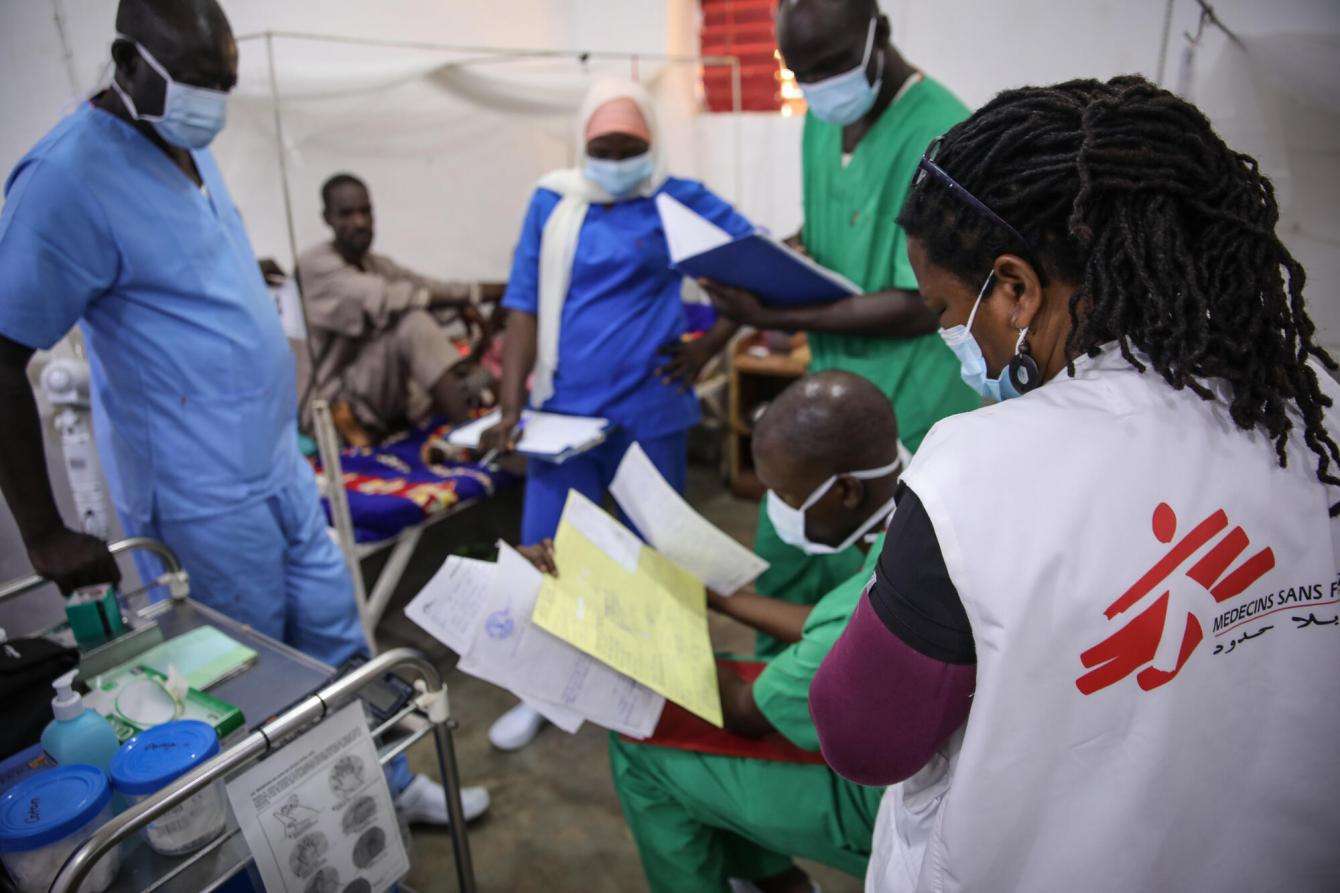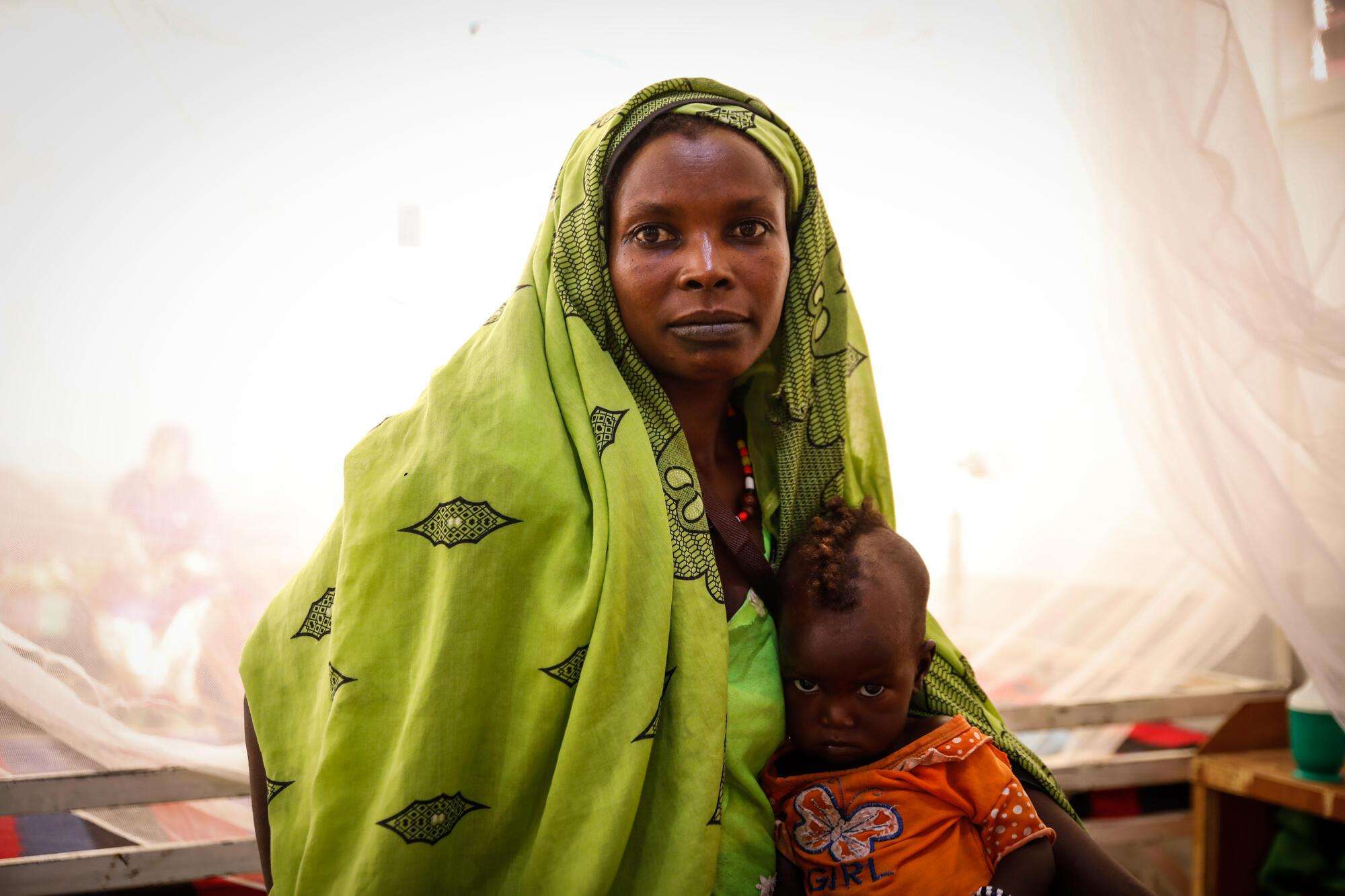Doctors Without Borders/Médecins Sans Frontières (MSF) teams are treating children with severe acute malnutrition in Adré, in eastern Chad, near the border with Sudan. The country, located in north-central Africa, officially declared a malnutrition and food insecurity emergency in June 2022. Below, Abdoulaye Ould Mohamedou, the head of MSF’s medical program in Adré, and Abderahman Ibet, MSF’s head of mission assistant in the regional capital Abéché, describe what the teams are seeing and why so many people are suffering from malnutrition in this area.
What’s the situation in eastern Chad, specifically in the Ouadddaï region where Adré is located?
Abderahman Ibet: On the socio-economic level, most people in the east of the country live in extreme poverty. Families often live off agriculture, so when there’s not enough rain their living conditions can deteriorate very rapidly. Land is shared between herders, who need it for their cattle, and pastoralists who need it for their fields. But, with less and less arable land, there are fewer crops and that creates tensions. Other economic issues are instrumental in destabilizing the region. For example, the export of millet—a staple in east Chad—to the Gulf States is also pushing up food prices.
Regarding Chad’s economy, Abéché is the biggest city in the east. It’s situated on the commercial road connecting the country to Sudan. Everything arriving from Arab countries passes through Sudan, Abéché, and from there to Nigeria. We’re seeing a surge in insecurity, as armed robbers and thieves are present in the area. The huge numbers of people panning for gold are also contributing to creating a climate of instability in Abéché. Crime and violence are surging.
Abdoulaye Ould Mohamedou: Security along the border with Sudan is a problem. Inter-communal conflicts are common in neighboring Darfur and trigger massive displacements of people. In January 2022, for example, we witnessed the arrival of more than 6,000 people fleeing the violence in Sudan.
Abderahman Ibet: The influx of such large numbers of refugees, which began in 2003, has destabilized the local population. When they first got here, they used a large part of the arable land and benefited from humanitarian aid, food in particular. It wasn’t the case for many Chadians, so it sparked tensions between the host population and the refugees.

What do MSF’s teams do in Adré?
Abdoulaye Ould Mohamedou: MSF’s current project in Adré was launched in August 2021. Its purpose is not only to assist the district with pediatric consultations for children under 15 years old, but also to be pre-positioned near the border should there be a mass influx of wounded people. This district borders western Darfur where periodic episodes of violence force people to flee to Chad.
We treat an average of 1,000 patients in the emergency room every month. During malnutrition peaks, we hospitalize around ten patients a day, which is the case right now. Eighty percent of outpatient consultations are for malnourished children and 60 percent of admissions to the inpatient department are children suffering from severe acute malnutrition. Fifty of the pediatric department’s beds are allocated to their care.
During the rainy season, it’s harder for people to reach medical facilities. For example, we’ve noticed that in the centers we assist in Mahamata and Ibouta when water levels rise in wadis [stream beds] families can’t get through to attend outpatient nutrition treatment appointments. This has a direct impact on the health of malnourished children.
There are also issues with quality of care because we don’t have enough qualified personnel and equipment. And we’re unable to offer all of the specialties or provide access to certain biological tests and services such as radiology.
Abderahman Ibet: I worked on the Adré project before, and I remember that when families heard MSF was offering free pediatric treatment, the number of children receiving care increased substantially compared to previous years. People travel long distances because treatment is free. We have Sudanese refugees coming from the other side of the border in Adikon to get their children treated in the pediatric department MSF supports.

What are the challenges in Adré district?
Abderahman Ibet: Everything is really expensive and children don’t get enough to eat. At the same time, they suffer from other diseases, like malaria, and don’t receive treatment because their parents don’t have the money to pay for it. There are many cases of malnutrition and children struggle to recover. Even the big cities, like Abéché and N’Djamena, are seeing a sharp increase in malnutrition.
Abdoulaye Ould Mohamedou: Mothers lament the fact that they have no money. These are people who live off traditional, non-intensive agriculture that relies heavily on rain. They earn a little cash from livestock breeding, but families here are really very poor.
This is a remote district and accessing resources, which are limited anyway, is a challenge. During the rainy season, water levels in the wadis rise, which prevents people from moving around. One of the causes of malnutrition in the area is the problem of access that impacts supplies and food prices.
Abderahman Ibet: Clean water is a huge challenge, too. Not all families in the big cities have access to it. Even though Abéché is a major urban center, people use rainwater. Further east, in districts like Adré, people use well water, but because it’s untested, they have no idea of its quality. There’s no clean water whatsoever in the villages, so everyone drinks wadi water.
Today, the true face of eastern Chad—that of an impoverished population that struggles to find work, who subsist solely on what they harvest, the countless out-of-school children—is invisible. These are people who are suffering, and because we do not get to see the true face of the region, there is a lack of funding.




